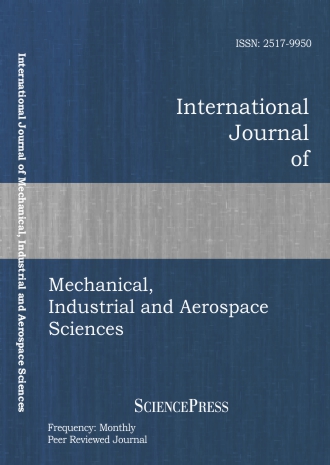
Scholarly
Volume:11, Issue: 3, 2017 Page No: 452 - 456
International Journal of Mechanical, Industrial and Aerospace Sciences
ISSN: 2517-9950
867 Downloads
Heat Transfer from a Cylinder in Cross-Flow of Single and Multiphase Flows
In this paper, the average heat transfer characteristicsfor a cross flow cylinder of 16 mm diameter in a vertical pipe has
been studied for single-phase flow (water/oil) and multicomponent
(non-boiling) flow (water-air, water-oil, oil-air and water-oil-air). The
cylinder is uniformly heated by electrical heater placed at the centre
of the element. The results show that the values of average heat
transfer coefficients for water are around four times the values for oil
flow. Introducing air as a second phase with water has very little
effect on heat transfer rate, while the heat transfer increased by 70%
in case of oil. For water–oil flow, the heat transfer coefficient values
are reflecting the percentage of water up to 50%, but increasing the
water more than 50% leads to a sharp increase in the heat transfer
coefficients to become close to the values of pure water. The
enhancement of heat transfer by mixing two phases may be attributed
to the changes in flow structure near to cylinder surface which lead to
thinner boundary layer and higher turbulence. For three-phase flow,
the heat transfer coefficients for all cases fall within the limit of
single-phase flow of water and oil and are very close to pure water
values. The net effect of the turbulence augmentation due to the
introduction of air and the attenuation due to the introduction of oil
leads to a thinner boundary layer of oil over the cylinder surface
covered by a mixture of water and air bubbles.
Authors:
References:
[1] Zukauskas, A. A., 1972, Heat transfer from tubes in cross-flow, Adv.